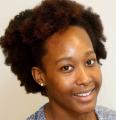There might be no statistics highlighting the number of non-Muslims who fasted during Islam’s holiest month, but anecdotal evidence suggests it is on the rise.
I joined millions across the globe who abstained from not only food and water during daylight hours, but cigarettes, alcohol, sex, and obscene music.
Ramadan marks a month of detox and getting closer to God, but what does it represent for a non-Muslim like me?
EID was just over a week ago now but unlike my Muslim brother and friends back home celebrating, I’d decided two days prior that enough was enough and called it quits on fasting.
By that point I’d completed 21 Ramadan fasts out of a possible 30, minus the days Mother Nature blessed women with having off, and had lost 1.6kg in weight which I’m purposefully gaining back in protein shakes, lentils and porridge.
The last ten days were the cruellest challenge of my willpower.
Silencing the voice in my head which just wanted to chew something, became problematic. More so than the physical hunger pangs which by then seemed to be on the rise having dipped in the weeks before.
During the first few days of Ramadan, I effortlessly sat through a dinner with colleagues, waiting patiently for mine to be brought over more than an hour later (to the waiter’s intrigue); and my two friends gorging on burgers in Castle Park as I slumped on the hot chair, genuinely disinterested in their plates.
Not to mention days out in the sun without feeling dehydrated, and declining the tea round for weeks at work. Some colleagues were clueless I was nil by mouth.
Meanwhile, I had to convince people all month they weren’t torturing me by eating and no, one cannot drink water while fasting, but rest assured, I’ll not die at my desk because of it.

One of the best ways to break fast is with fruit
Deciding to do Ramadan for the second time was a split second decision but telling people, on the other hand, was not.
Doing something so physically and mentally demanding when you aren’t obligated to is generally unimaginable to most, so I was trying to shield myself from the awkward judgement.
Ramadan is a religious practice after all, and a drastic one from the outside looking in. But as was my intention when I first fasted in 2013, as a teaching assistant in a predominantly Muslim school, I wanted to immerse myself in a tradition I grew up aware of, and to also examine the limitations we tend to set ourselves without good reason.
Also for those students, it would’ve been one of the first times someone outside of their culture had displayed such empathy towards them, and an interest in their religion, rather than being intimidated by, or derogatory, about it.
As I told BBC radio presenter Gagan Grewal during a phone-in, through fasting we had a valuable shared experience which is what Ramadan had been for me this year too; albeit via WhatsApp instead of Iftar (the evening meal when fast breaks) spent at my friend’s home in Birmingham.

Vicky pictured with friend/ moral support Nikky Shah
He asked me what the hardest aspect was and I replied: “Eating is habitual so I wake up in the morning and want to eat, but you have to really distract yourself from those thoughts.
“But then on the flipside of that, when you do break your fast, because it’s such a small window, you have to make sure you’re eating something which is nutritious, so a lot of the indulgences you had before you tend to move away from.”
But the best bit? “The mindfulness. You really tune into what you’re thinking and feeling. For me, away from the religious aspect of it, spiritually, you do gain a lot.”
Ramadan provoked a lot of revelations for me.
I mentally craved food far more than I did physically, hence why when I knew I could eat, I didn’t rush to put a plate together. Now, when I see certain foods, I’m more inclined to question my desire instead of being a compulsive eater.
Distraction was my best friend too. TV proved better than reading and being out with friends trumped all those options.
In gratitude I also found comfort.
“At least in however many hours I’ll be able to eat, but how many people right now aren’t blessed with the same opportunity?” I asked myself.
If it was a particularly tough day, I said, “Thank you” to whoever was listening for getting me through.
When I finally bowed out of fasting, I did so with a heightened awareness of my own strengths and weaknesses, greater empathy, and a newfound respect for the phrase “It’s mind over matter”.
The point of completing Ramadan was to challenge my habits, sharpen my self-perception, and bring cultural awareness to those around me who had no real idea about this Islamic custom.
I think I succeeded.
As to whether I’ll do it again in 2019, perhaps ask me next May.
Skip to 37 minutes to hear more of my interview here.
READ MORE: RAMADAN IN COLCHESTER IS FOR MUSLIMS AND NON-MUSLIMS








Comments: Our rules
We want our comments to be a lively and valuable part of our community - a place where readers can debate and engage with the most important local issues. The ability to comment on our stories is a privilege, not a right, however, and that privilege may be withdrawn if it is abused or misused.
Please report any comments that break our rules.
Read the rules hereLast Updated:
Report this comment Cancel